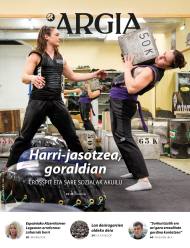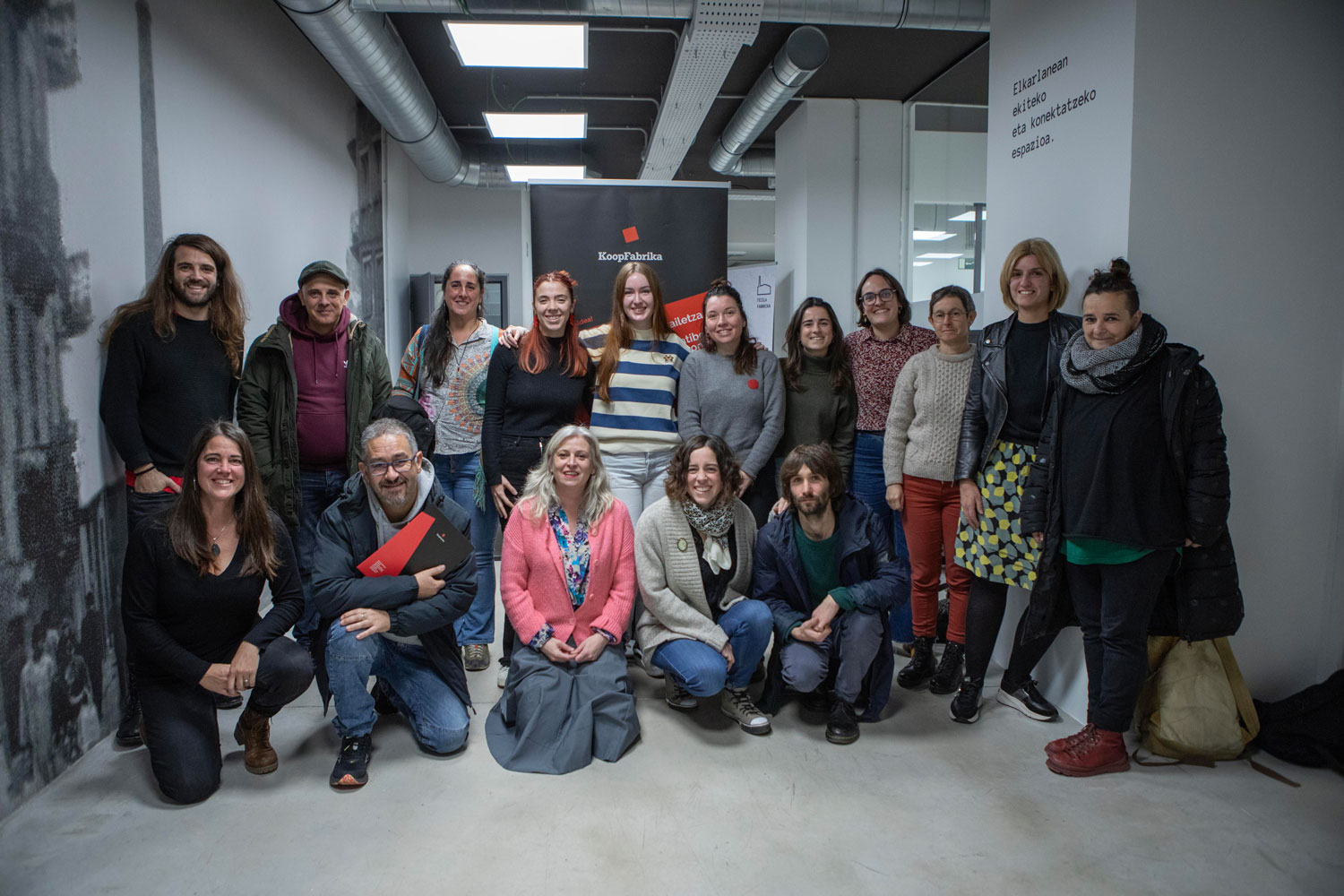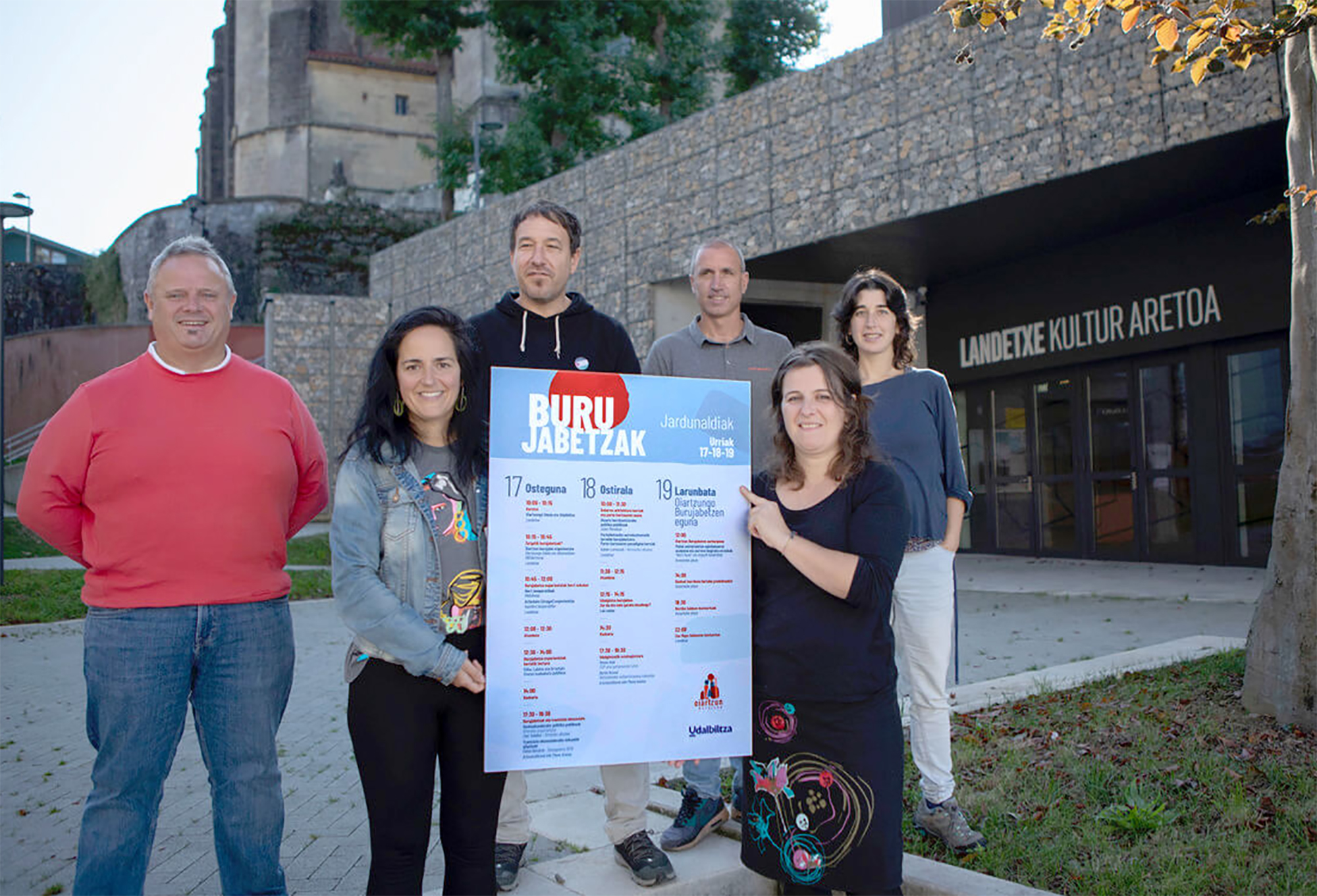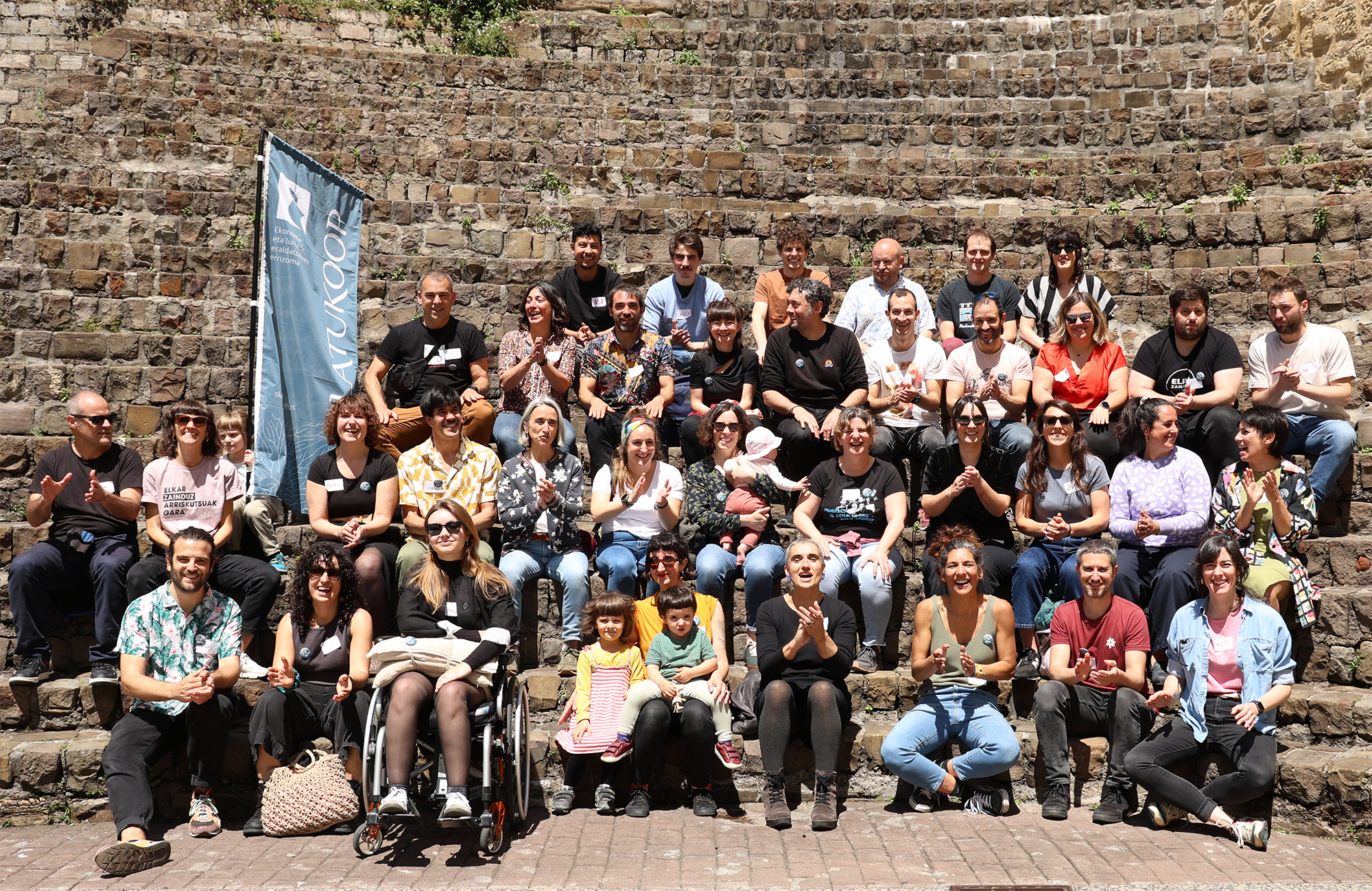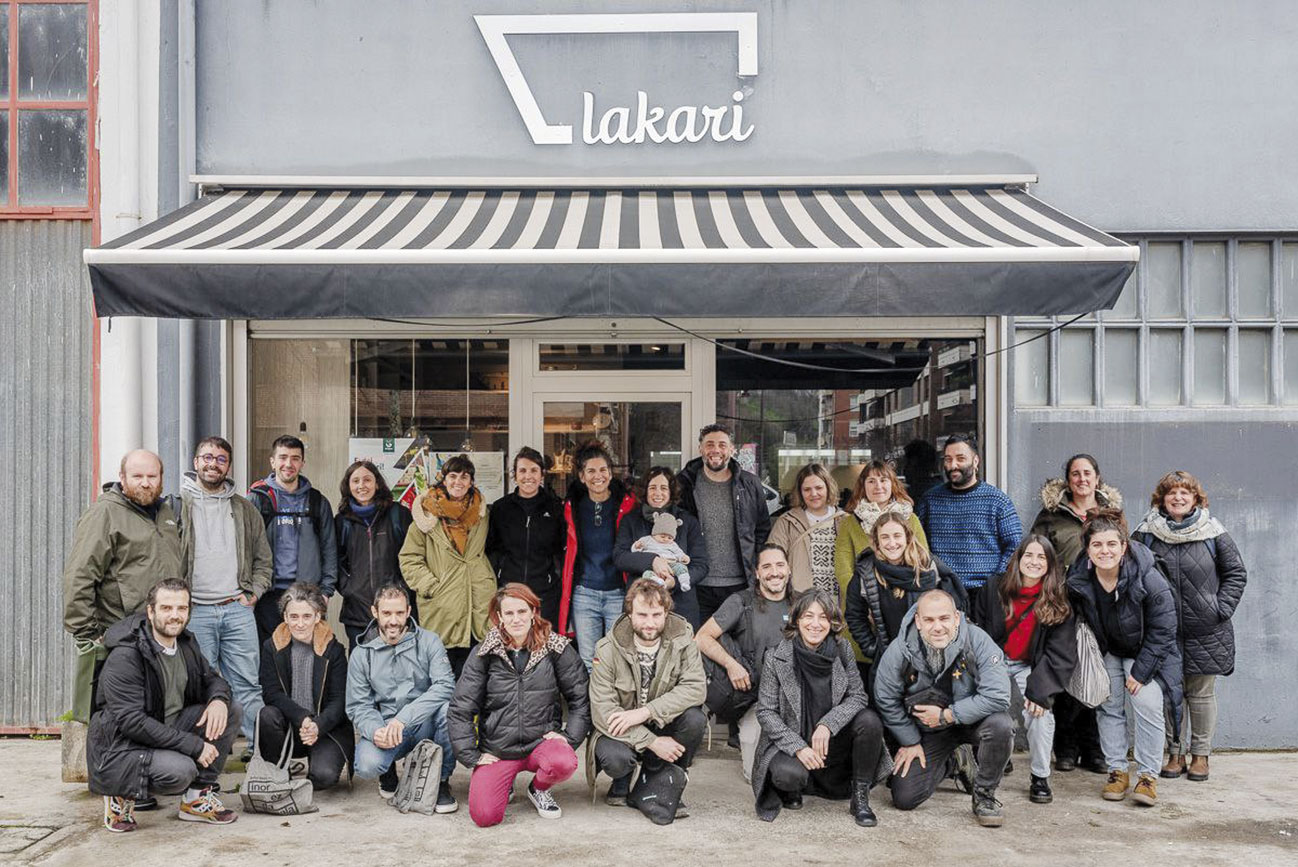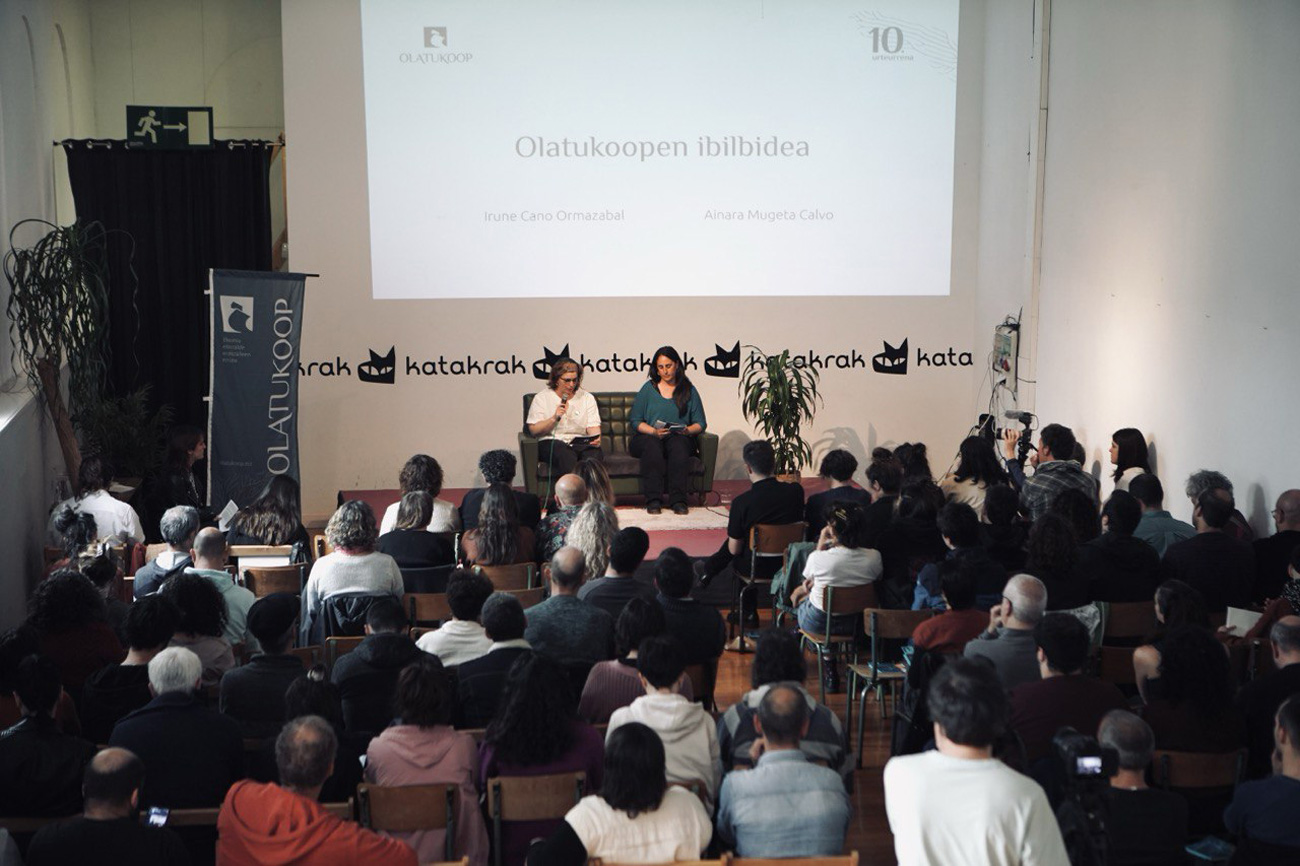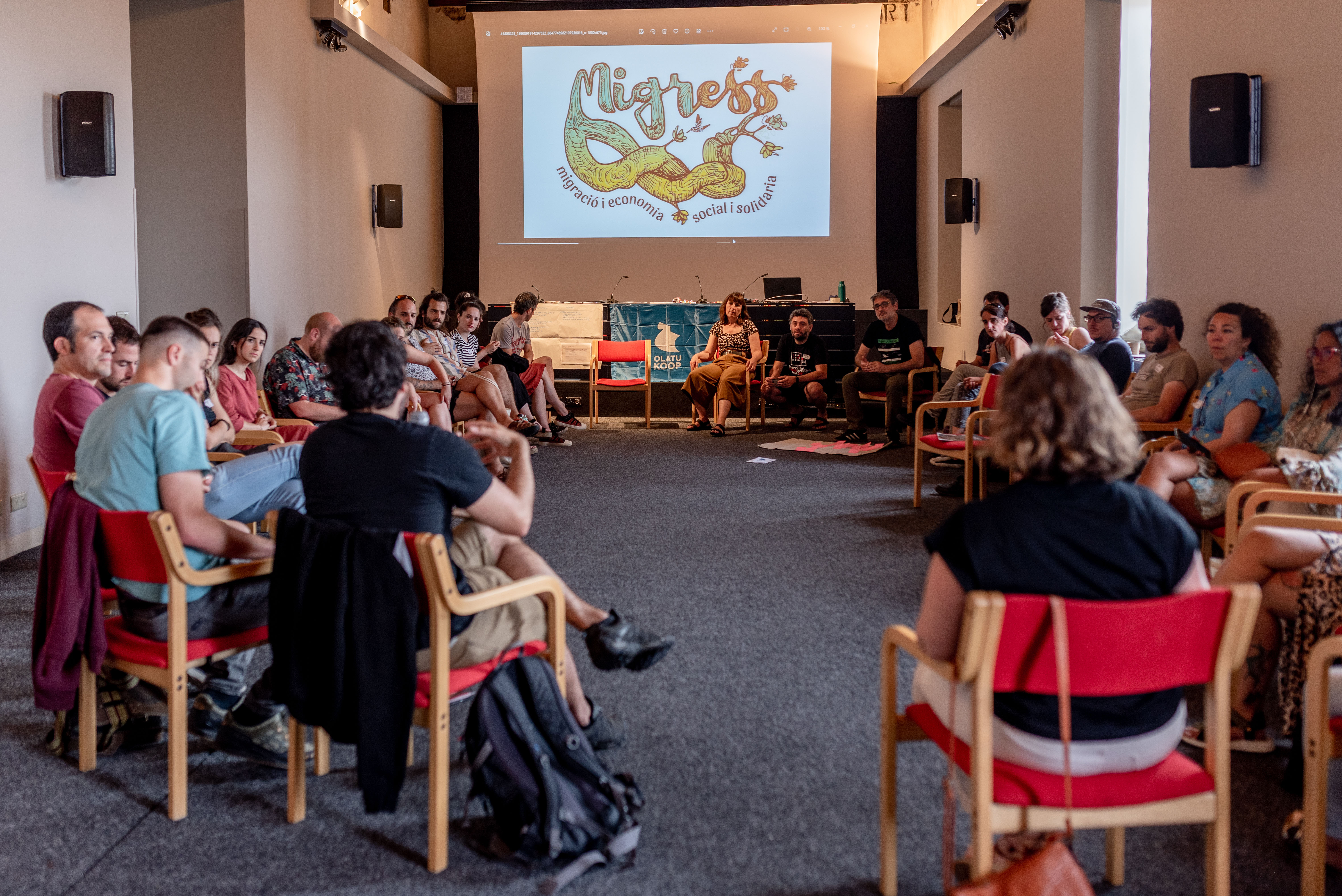A Proposal for May Day: Desirable and Sovereign Works for All
- On the occasion of the First of May, the network to promote the Transformative Social Economy, Olatukoop, wanted to share its reflection. Linked to Workers’ Day, they reflect on the nature and meaning of work, proposing the development of sovereign and desirable jobs for all as a way to transform our lives and society. Along these lines, the paper is also a preview of a more developed proposal, which will soon be released in the form of a brochure.
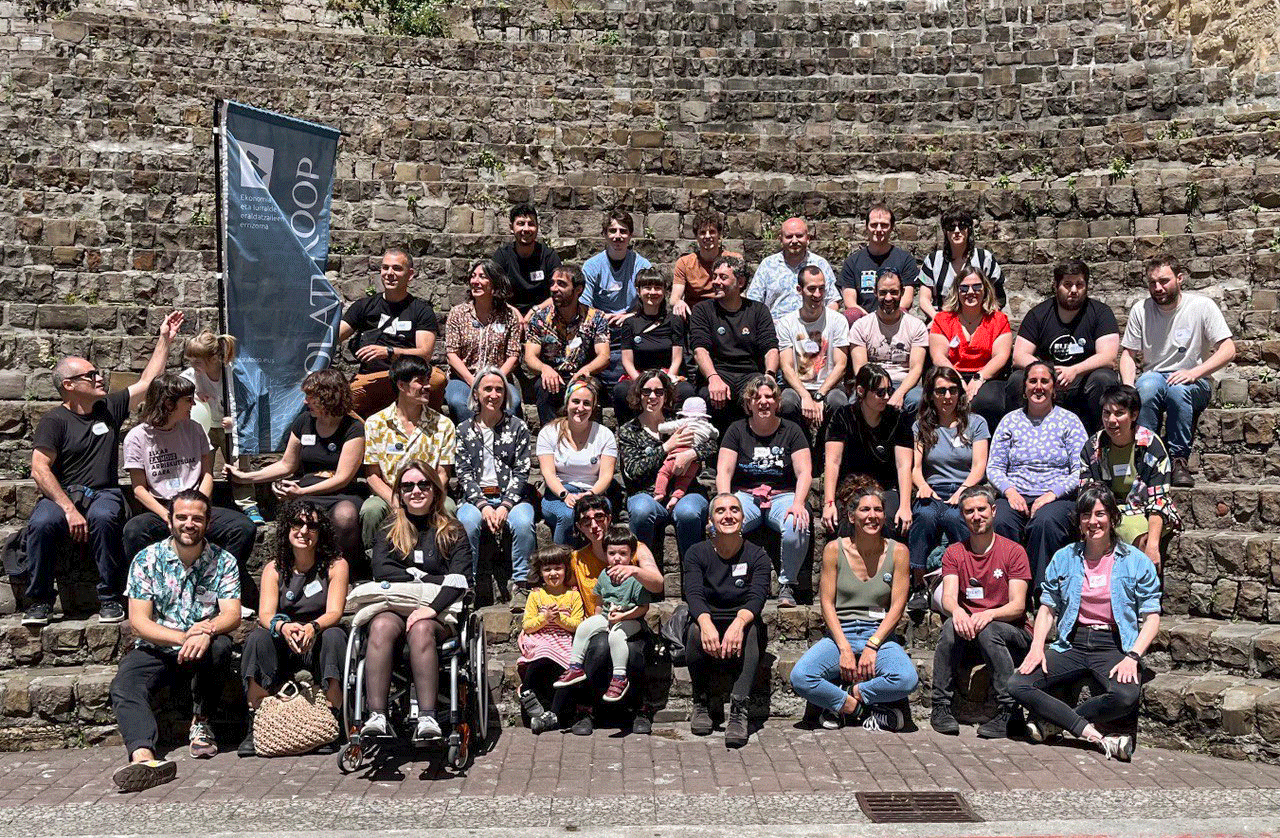
In this First of May, we call from day to day, from our daily work and lives, to continue building a new world. We know that May Day has been an important day for workers to take new steps, but in view of the fact that in the global context, steps are being taken backwards, through the reactionary regression of social and political rights and the continuous precarization of material conditions, it is up to us, the workers who work in cooperativism and a transformative social economy, to reaffirm in the advances made along the way. As we have said in the moments of sharpening the systemic crisis that led to the creation of the Olatukoop network, there is no middle ground, because the future will not be like the past. In the direction of the steps, however, we can influence the collective.
We propose to organize the economy and work for life. To satisfy basic needs, but also to develop and realize the goals we desire, to give meaning to work and to correctly distribute the material wealth and prosperity generated. We need an economic model based on the capacity of each one, and on the transformative proposal of each one according to their needs. A society that is unable to care for its compatriots and workers has no future, and the capitalist model of wage labor shows us that it is a model that, instead of taking care of them on a day-to-day basis, exploits them, exhausts them and makes no sense of our lives. That is why we want to bring the sense of work to the base, and we want to work out ways to make it desirable from the point of view of the sovereignty of work.
In order to make way, however, we must move away from the hegemonic definitions of work itself and make new collective proposals. The members of Olatukoop understand that work depends on the project of life and that through work, we fulfill our needs and desires, working productively and reproductively beyond differentiation, placing at the center practices that positively influence the habitability of life, and thus, in our daily lives, we work for a social, transformative, cooperative, (trans)feminist, Basque, anti-racist and decolonial economy. Therefore, work is a daily economic and social action that contributes to life, which is part of the human condition, much more than salaried work or employment, contrary to what has been imposed on us in today’s capitalist society.
At Olatukoop we do the work of putting the economy at the service of our lives in a sovereign way, that is, the main decisions about work are made by the workers themselves. By incorporating a comprehensive approach to work and building on self-formation and non-capitalist relations, we create, manage and recreate decent and common work. Our goal is to collectively manage ownership and control of productive resources and decision-making processes based on integral participation, economic democracy, equality, social justice and economic sustainability. To this end, transparent information, fair distribution of income and results, and equality practices are at our core, promoting mechanisms of solidarity between members of both the project and the community.
We propose to develop and expand the sovereignty of work, to work more on what we consider to be desirable work, and to devote ourselves as little and as much as possible to what we do not want. Therefore, we must put the decision-making points about the necessary tasks in the hands of the workers, earning time for the desirable tasks, reducing, distributing and automating the undesirable tasks. By the way, we reject the forms of dead work that precarize our daily lives, for example, technologies based on rentism, financial speculation or data extractivism, identifying them as contrary to the field of the transformative vision of work.
We place the future of work in collective care and not in the areas of need of technocapitalism, thus directing time to the cultivation of human relations and not to the interfaces for the regeneration of capital. If we want to understand the mechanisms of social life and social change, we must start from the reproduction of daily life, giving it value, prestiging the care itself, of people, of the community, of the land, and making it indispensable.
María Mies pointed out that "a feminist concept of work must be oriented towards a different conception of time, where it is not divided into parts of heavy work and parts of supposed pleasure and leisure, but a concept of work in which time of rest and enjoyment at work alternate and mix. If this form of organization and understanding of time prevails, the length of the working day becomes insignificant. A day or a lifetime of work would not feel like a curse, but as a source of human integrity and happiness."
Desirable work makes sense when we imagine and make possible a system of cultivating our capacities, both in our free time and in our working time, through sovereign work. And this must be possible for all, it loses its meaning otherwise, eroding its own desirability. That is why livable lives and labour sovereignty must be possible and accessible to all. It is about recognizing, valuing and guaranteeing both productive and reproductive tasks that are vital for sustaining life (individual, group and community), that is, taking into account both material resources and other areas necessary for life (relationships, care, motivations...) and making them accessible to all human groups.
The road is long, and in the first steps we will have to transform the narratives around the work, identifying desirable discourses and practices. On the one hand, throughout history, adding visions beyond dependent wage labor and intersecting with the debates that are taking place today. On the other hand, and also from within the Transformative Social Economy, cultivating the capacity to imagine new worlds and nourishing new imaginaries of work in the creation of our practices for this. Discourses that identify having a safe public job and/or getting money quickly as a success are common in us, while collective work organizations and/or the views on work that place care at the center are rejected or underestimated. Our path is not perfect, but we believe that by provoking new looks, we can influence the prospects of the work we would like to achieve.
Therefore, on this First of May, the members of the Olatukoop network that we promote the Transformative Social Economy, the workers, together, proclaim the cooperative tools that we have organized to meet our needs as a way to achieve desirable and sovereign jobs for all. To improve our jobs and lives, to consolidate ourselves in our neighborhoods, towns and territories, as well as to implement significant changes for the whole society. As we celebrate that we will achieve collective achievements that seem impossible at the moment through struggle, we declare that the creation of sovereign and desirable jobs is our contribution to the collective struggle, and we call on all sovereign and cooperative workers to be part of the mobilization and organization.
Because transforming work is the beginning. Long live the First of May!
Budgets and the closure of annual accounts are nothing more at this time, from the domestic economy to most of the socio-economic spaces that we share. Large companies have begun to extract calculators and implement major plans for 2025. Small and medium-sized institutions and... [+]
One of the major projects developed by Olatukoop with other actors is KoopFabrika, a programme created in 2017 with the aim of boosting social entrepreneurship and which is currently underway.
Initially, the first idea was that the cooperatives and agents that gathered around... [+]
Koopfabrikak antolatuta, Lurraldeak eta kooperatibak. Katalunia eta Euskal Herriko esperientziak jardunaldia egingo dute otsailaren 18an Oñatin, Arantzazun.










